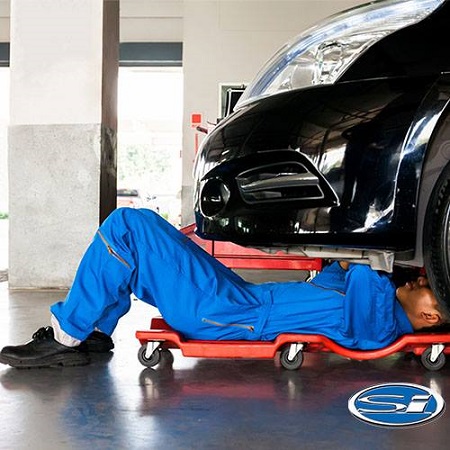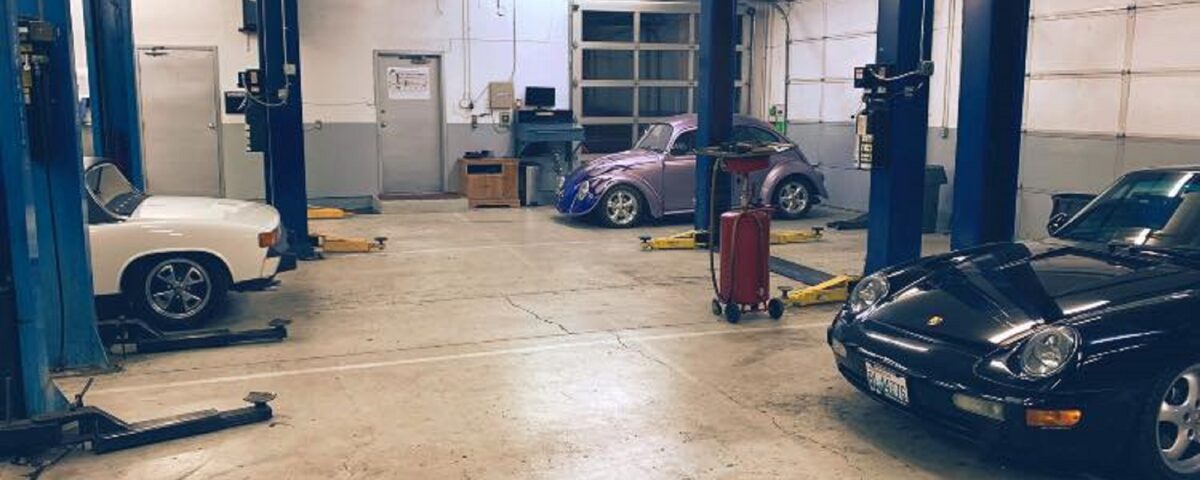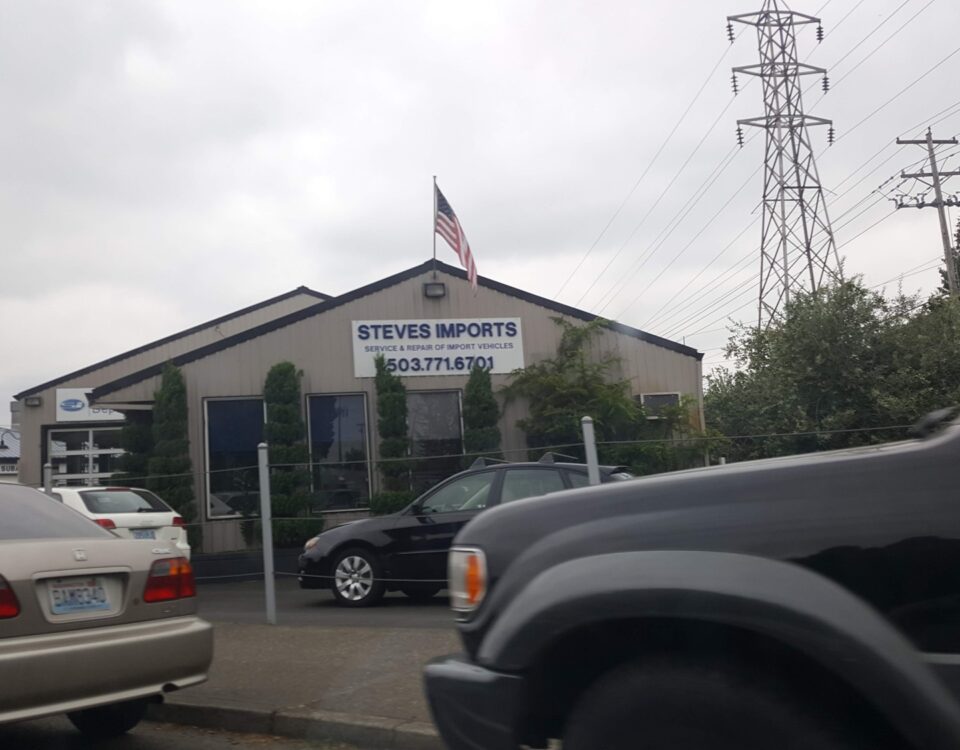
Benefits of Professional Auto Repair vs. DIY
October 31, 2022
Tips on Prolonging the Life of Your Car
November 2, 2022The brakes are arguably the most critical safety feature of your car. With this in mind, you always want to keep your breaks in working order and ensure that they are doing so efficiently to keep peace of mind. Unfortunately, brake issues are common, so you must know what to do when they come up. Here are some frequently asked questions about brake repair:
How Often Do I Need to Get My Brakes Repaired?
It depends on how often you use your car and the conditions you typically drive in. If you live in a hilly area and do a lot of stop-and-go driving, you will need to get your brakes repaired more frequently than someone who lives in a flat area and rarely uses their car. However, experts generally recommend getting your brakes repaired every six months to ensure that they are always in top condition.
What Are the Signs That I Need to Get My Brakes Repaired?
The most obvious sign that you need to get your brakes repaired is if they are making noise when you press on the brake pedal. This can be a squealing or grinding sound, indicating that the brake pads are worn down and need replacement. Another sign of brake trouble is if the pedal feels spongy when you press on it, which means there is air in the line, and it needs to be bled out. Newer vehicles have brake pad wear sensors that will allow a warning to appear on the instrument cluster/dash of your vehicle. And one of the most common issues is rotor warpage from excess heat. When excessive down hill braking occurs, rotors can work, which will cause a “shimmy” in the steering wheel at higher speeds, typically over 40mph while braking.
What Will Happen If I Don’t Get My Brakes Repaired?
If you don’t get your brakes repaired when they need it, you are putting yourself and others at risk. Worn-out pads and brake fluid leaks will not stop the car as efficiently, meaning it will take longer to stop. This could lead to an accident if you cannot stop in time.
How Much Does It Cost to Get My Brakes Repaired?
The cost of brake system repair will vary depending on the type of problem and make of vehicle you have. For example, if you just need to have your brake pads replaced, it will be less expensive than if you need pads, rotors and sensors replaced. Other brake hydraulic system parts can include the Master Cylinder, Brake Proportioning Valve, and ABS module. However, it is always a good idea to regularly get a brake inspection to catch any problems early on and avoid paying for a more expensive repair.
How Can I Make My Brakes Last Longer?
There are a few things that you can do to make your brake lines last longer. First, avoid riding the brake pedal while driving. This will cause the pads to wear down more quickly. Second, ensure that you get your brake system repaired as soon as you notice any problems. The sooner you get them fixed, the less damage will be done and the less expensive the repair will be. Finally, avoid driving in hard conditions on brakes, such as stop-and-go traffic or mountainous terrain.
How Often Should I Replace My Brake Pads?
It is typically recommended that you replace brake pads every 30,000- 50,000 miles or every two to three years. However, this will vary depending on your car type and how often you use your brakes. If you do a lot of stop-and-go driving or live in a hilly area, you may need to replace your brake pads more frequently. Consult your owner’s manual for specific recommendations after a brake inspection.
What Is the Difference Between Brake Pads and Brake Shoes?
Brake pads are made of a hard material, such as ceramic, that presses against each side of the rotor in a clamping fashion, to stop the car. Brake shoes push outwardly on the inside of the drum causing friction to stop the drum from turning. Both brake types are effective, but brake pads and rotors are far more efficient and very few manufacturers still use Shoe and Drum brake systems today.
Should I Get My Brakes Repaired at a Dealership Or a Local Repair Shop?
There are pros and cons to both options. Dealerships typically have more expensive parts and labor, but they usually have the part in stock. Local repair shops usually have lower prices, but it may take them a couple hours to get the part locally if they do not already have it in stock. Ultimately, the decision is up to you. Just be sure to do your research to find a reputable shop that will do a good job.
What Is the Most Common Type of Braking System Problem?
The most common type of brake problem is worn-out pads. Brake pad wear is usually caused by either driving in stop-and-go traffic or riding your brakes for too long. If you notice that your brakes are taking longer to stop, or you have a wear sensor warning light on, see shop as soon as possible.
Is It a Problem That I Hear a Squealing Noise When I Press the Brakes?
Yes, this is usually a sign that your brake pads are wearing down and need to be replaced. When you step on the brake pedal, the squealing noise is caused by a metal tab that rubs against the rotor when the pads are worn thin. Ensure your brake components are checked as soon as possible to avoid more expensive repairs. Sometimes excessive dust, dirt or rust can also cause squeaking or squealing. During summer, disc brakes produce a lot of brake dust build up, and your brakes may need to be cleaned or replaced. And during winter, it is common to develop a thick layer of rust on your rotor after it sits over night, this will typically wear off after a few minutes of driving.
What Is the Difference Between a Brake Rotor and a Brake Drum?
A brake rotor is a metal disc that the brake pads press against to stop the car in a clamping like fashion. A brake drum is a metal cylinder that the brake shoes press outwardly against to stop the car. Both brake components will work on your car effectively, but brake rotors tend to last longer than brake drums and have much better stopping power.
Got Brake Issues?

If you think your car brakes need urgent brake inspection, don’t hesitate to visit our auto repair shop for a quick but thorough examination. Steve’s Imports offers comprehensive brake repair and maintenance services in Portland. Contact us today to schedule an appointment. Our team of auto repair professionals are happy to help!
Here are the related services we offer:
- Brake repair service
- Brake maintenance services
- Professional brake repair technicians
Check out our website, Steve’s Imports, on Google!


